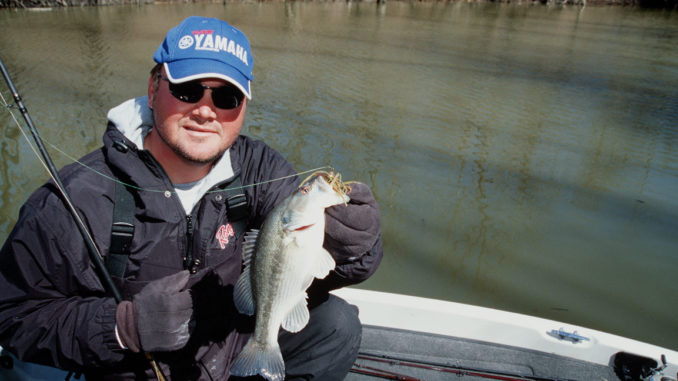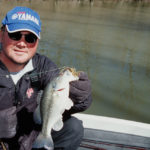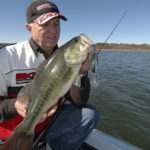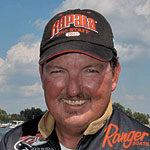
Don’t miss chance to catch fish on warm days
There are a lot of good reasons to fish in December, chief among them, most everybody else is deer hunting, and you’ve pretty much got the lake to yourself.
But as far as having a good time and putting fish in the boat, December can be very interesting. It’s another one of those months — like November and January — when weather means everything.
If it’s really cold, you might better stay inside and change your hooks and oil your reels. But I can think back on years past when I’ve had some really good days in December.
You’ve just got to hit a little warming trend.
Different kinds of weather conditions will send you to different areas, doing different things with different lures. And you never know until you go to the lake and see what the conditions are, what the water temperature is, what you’ll have to do.
About all the input you have is trying to pick days to fish when you’ve had a period of warm weather.
I’ve had some terrible, terrible days when I should have stayed at home, but I’ve also had some days that were as good as you could ever imagine.
Here are some things to consider:
Frontal activity hurts winter fishing as much as it does spring fishing because it makes bass less aggressive and sluggish.
If we don’t have a cold fall, fish may still be shallow in December, having never moved out into deep water.
If the wind is blowing, fish seem to move up and feed more. If you get wind, clouds and a little warm front coming in with some rain, they will really bite.
Bass will move up on flats in relatively shallow water if you can get a few days of warm water in succession.
December is a time when you can catch striped bass and largemouth bass at the same places, which can make for a lot of fun. In fact, I think really big bass will hang out with stripers during the winter.
I can remember many, many times when I’ve been fishing a long point that had stripers all over it, and all of the sudden, right in with the stripers, I caught a 7-pound bass.
As far as tactics and techniques, you need to be versatile — you can’t be wedded to any one way to catch fish during the winter, because the weather can change patterns overnight.
December is one time of the year when I like to take a ¾-ounce Hopkins spoon or a tailspinner — some kind of a drop bait — and go out to the edge of a channel and try to locate some bigger schools of fish.
A lot of times, places such as road beds will also be good because you’ve got that big change in depth in just a matter of a few feet.
I’ve had some great days at Buggs Island on the submerged railroad trestle above Satterwhite Point in Nutbush Creek. It follows that a lot of times when you find fish in extremely shallow water, they’ll usually be on bluff walls where you can be sitting in 20 to 30 feet of water and casting to the bank — and when you have those kinds of places, you can expect to be around a lot of rock.
I also like to fish the main lake or around the mouths of creeks; it seems like the main lake is always better in December.
I like to throw crankbaits in dull shad colors such as Gray Ghost or carp. A Rapala DT-14 or DT-10 can be really good, but if you find the water warming up for a couple of days, fish may move up on flats where you can catch them on a Shad Rap or a Wiggle Wart. In fact, a Wiggle Wart has always been a good bait when the water is cold.
One of the best days I can remember having in December was at Buggs Island. I was fishing near the mouth of a creek, fishing a place where deep water swept close by the bank. I must have caught 50 or 60 bass at that one point; they were stacked in there that good.
I’d catch three or four fish on one pass, then go back and make another pass and catch three or four more. I just kept doing that and kept catching fish.
I like to do two other things in the winter months that really help catch fish.
I like to fish a spinnerbait, casting it and winding it back as slowly as I can, just bumping it along the bottom.
I also like to fish a jig when the water temperature gets down in the 50s and stays there. I like to cast it, let it sink to the bottom, then “pop” it off the bottom.
I think you can really trigger strikes that way.
(Reprinted from December 2006 issue of North Carolina Sportsman.)






Be the first to comment